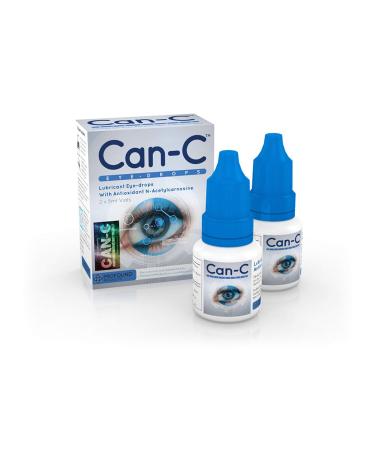Caneafem 2 for the period from the 13th week of pregnancy (SSW) & breastfeeding Caneafem 2 with Extrafolate-S + DHA was specially developed for the optimal supply of mother and child from the 13th week of pregnancy (SSW). In addition to folate and vitamins, mother and child from the 13th week of pregnancy and also during breastfeeding also need polyunsaturated omega-3 fatty acids. DHA and EPA, both omega-3 fatty acids, are particularly important during pregnancy. Caneafem 2 contains bioactive folate*, important vitamins and also the polyunsaturated omega-3 fatty acids DHA and EPA. * bioactive folate = can be used directly by the body What is the role of omega-3 fatty acids in pregnancy? Infants, particularly premature babies and non-breastfed newborns and small children, have a higher risk of being undersupplied with omega-3 fatty acids than adults. Since the human body can only produce omega-3 fatty acids in very small quantities, they must be supplied through diet and/or food supplements. According to recommendations from the German Nutrition Society, pregnant and breastfeeding women should consume an average of at least 200 mg of docosahexaenoic acid (DHA) per day. This is because DHA contributes to maintaining normal brain function and vision. The intake of EPA (eicosapentaenoic acid) contributes to normal heart function during pregnancy and breastfeeding. The positive effect occurs with a daily intake of 250 mg of EPA and DHA. To avoid annoying burping when the omega-3 capsules dissolve in the stomach, Caneafem 2 uses a special soft gelatin capsule. Due to the special manufacturing process, the capsule dissolves slowly in the gastric juice, thus annoying burping can be avoided. The omega-3 fatty acids used in our Caneafem 2 are characterized by their particularly high quality: natural fish oil from wild catch, sustainable and FOS-certified (""Friend-Of-Sea""). In addition, Caneafem 2 covers the increased need for bioactive folate and vitamin B12 during pregnancy. Other selected and valuable vitamins round off this special product. Why folic acid is so important during pregnancy Scientific studies show that the risk of a neural tube defect can be reduced by taking an additional 400 µg of folic acid before and during the critical phase of neural tube closure. Irrespective of this, hereditary factors can also be a risk for a neural tube defect. Folate has an important function in cell division, as this is of particular importance for the development of the neural tube. In addition, folate also contributes to the necessary growth of maternal tissue such as the placenta during pregnancy. Up to the 30th week of pregnancy, a pregnant woman needs up to 50% more blood volume. Folate has an important function here; it contributes to normal blood formation. Vitamin B12 also contributes to the normal formation of red blood cells. Vitamins B2, B6, B12, niacin, pantothenic acid and vitamin C help reduce tiredness and fatigue, which often trouble pregnant women. Why the amount of folic acid in food is not sufficient Folic acid is not bioactive, i.e. it cannot be used directly by the body, but must first be converted into folate. Normally the body is able to absorb folic acid and convert it into folate. But not all women can use folic acid. This requires the enzyme MTHFR, which converts the synthetic folic acid into its biologically active form, folate. This enzyme is not present in all people or is equally effective. Around 50% of all women in Central Europe cannot convert synthetic folic acid. By taking Caneafem 2 with Extrafolate-S, which contains the bioactive form of dietary folate in addition to folic acid, the increased need for folic acid can be met, even if there is not enough of the MTHFR enzyme. When folate is taken from daily food, it is not guaranteed that the recommended dosage of 400 µg folic acid during pregnancy will actually be achieved. This may be due, among other things, to the heat sensitivity of folic acid/folate, which is largely destroyed during cooking. INGREDIENTS Corn starch, L-ascorbic acid, hydroxypropylmethylcellulose, DL-a-tocopheryl acetate, nicotinamide, calcium L-methylfolate (Extrafolate-S®), pteroylmonoglutamic acid (folic acid), calcium D-pantothenate, pyridoxine hydrochloride, thiamine hydrochloride, riboflavin, cyanocobalamin, cholecalciferol, anti-caking agent magnesium salts of fatty acids, D-biotin, colorant calcium carbonate. Soft capsule: DHA, EPA-containing fish oil, fish gelatin, humectant glycerin, D-a-tocopherol, D-xylose INSTRUCTIONS FOR USE Food supplements are not a substitute for a balanced, varied diet and a healthy lifestyle. The recommended daily intake must not be exceeded. Store at room temperature, dry, always closed and out of the reach of children. More ?MADE IN GERMANY,Patent-protected manufacturing process ✓ High-quality raw materials and environmentally friendly production ✓ Best quality ✓. ?? LABORATORY TESTED,Developed in dialogue with pregnant women ✓ Quality tested by independent laboratories ✓. ? INGREDIENTS,Folate ✓ Folic acid ✓ B vitamins ✓ Vitamin C ✓ Vitamin D ✓ DHA ✓. ? BIOAVAILABILITY,Folate for high bioavailability of folic acid ✓ Ensures optimal supply for mother and child ✓. ? QUALITY,All important vitamins ✓ Tailored to the special needs of pregnant women ✓ Risks for the unborn child are significantly reduced ✓ Higher quality than pure folic acid products ✓. Caneafem 2 für die Zeit ab der 13. Schwangerschaftswoche (SSW) & Stillzeit Caneafem 2 mit Extrafolate-S + DHA wurde speziell für die optimale Versorgung von Mutter und Kind ab der 13. Schwangerschaftswoche (SSW) entwickelt. Neben Folat und Vitaminen benötigen Mutter und Kind ab der 13. SSW und auch in der Stillzeit zusätzlich mehrfach ungesättigte Omega-3-Fettsäuren. DHA und EPA, beides Omega-3-Fettsäuren, haben während der Schwangerschaft eine besondere Bedeutung. Caneafem 2 enthält bioaktives Folat*, wichtige Vitamine und zusätzlich die mehrfach ungesättigten Omega-3-Fettsäuren DHA und EPA. * bioaktives Folat = direkt vom Körper verwertbar Welche Aufgabe haben Omega-3-Fettsäuren in der Schwangerschaft Säuglinge, besonders Frühgeborene und nicht gestillte Neugeborene sowie Kleinkinder, haben ein höheres Risiko einer Unterversorgung von Omega-3-Fettsäuren als Erwachsene. Da Omega-3-Fettsäuren nur in geringsten Mengen vom menschlichen Körper gebildet werden können, müssen sie über die Ernährung und/oder Nahrungsergänzungsmittel zugeführt werden. Nach Empfehlungen der Deutschen Gesellschaft für Ernährung sollten Schwangere und Stillende im Durchschnitt mindestens 200 mg Docosahexaensäure (DHA) am Tag zuführen. Denn DHA trägt zur Erhaltung einer normalen Gehirnfunktion und Sehkraft bei. Die Zufuhr von EPA (Eicosapentaensäure) trägt zu einer normalen Herzfunktion während der Schwangerschaft und in der Stillzeit bei. Die positive Wirkung stellt sich bei einer täglichen Aufnahme von 250 mg EPA und DHA ein. Um das lästige Aufstoßen während der Auflösung der Omega-3 Kapseln im Magen zu vermeiden, wird bei Caneafem 2 eine spezielle Weichgelatinekapsel verwendet. Aufgrund des besonderen Herstellungsverfahrens löst sich die Kapsel im Magensaft verzögert auf, so kann störendes Aufstoßen vermieden werden. Die in unserem Caneafem 2 eingesetzten Omega-3-Fettsäuren zeichnen sich durch eine besonders hohe Qualität aus: natürliches Fischöl aus Wildfang nachhaltig und FOS-zertifiziert (""Friend-Of-Sea"") Zusätzlich deckt Caneafem 2 den in der Schwangerschaft erhöhten Bedarf an bioaktivem Folat und Vitamin B12 ab. Weitere ausgesuchte und wertvolle Vitamine runden dieses besondere Produkt ab. Warum Folsäure in der Schwangerschaft so besonders wichtig ist Wissenschaftliche Studien belegen, dass das Risiko eines Neuralrohrdefektes durch die zusätzliche Einnahme von 400 µg Folsäure, vor und während der kritischen Phase des Neuralrohrverschlusses, verringert werden kann. Unabhängig davon können u.a. auch erbliche Faktoren ein Risiko für einen Neuralrohrdefekt sein. Folat hat eine wichtige Funktion bei der Zellteilung, da diese für die Entwicklung des Neuralrohrs von besonderer Bedeutung ist. Darüber hinaus trägt Folat während der Schwangerschaft auch zum notwendigen Wachstum des mütterlichen Gewebes wie der Plazenta bei. Bis zur 30. Schwangerschaftswoche (SSW) benötigt eine Schwangere bis zu 50% mehr Blutvolumen. Hierbei hat Folat eine wichtige Funktion, es trägt zu einer normalen Blutbildung bei. Darüber hinaus trägt Vitamin B12 zu einer normalen Bildung roter Blutkörperchen bei. Die Vitamine B2, B6, B12, Niacin, Pantothensäure und Vitamin C tragen zur Verringerung von Müdigkeit und Ermüdung bei, die Schwangeren oft zu schaffen machen. Warum die Menge an Folsäure aus der Nahrung nicht ausreicht Folsäure ist nicht bioaktiv, kann also nicht direkt vom Körper verwendet werden, sondern muss erst in Folat umgewandelt werden. Normalerweise ist der Körper in der Lage, Folsäure aufzunehmen und in Folat umzuwandeln. Aber nicht alle Frauen können Folsäure verwerten. Dazu ist das Enzym MTHFR notwendig, welches für die Umwandlung der synthetischen Folsäure in ihre biologisch aktive Form, das Folat, sorgt. Dieses Enzym ist nicht bei allen Menschen vorhanden oder gleich effizient. Circa 50 % aller Frauen in Mitteleuropa können synthetische Folsäure nicht umwandeln. Durch die Zufuhr von Caneafem 2 mit Extrafolate-S, das zusätzlich zur Folsäure die bioaktive Form des Nahrungsfolats enthält, kann der erhöhte Bedarf an Folsäure gedeckt werden, auch wenn nicht genug des Enzyms MTHFR vorhanden ist. Bei der Zufuhr von Folat aus der täglichen Nahrung ist nicht sichergestellt, dass die in der Schwangerschaft empfohlene Dosierung von 400 µg Folsäure auch wirklich erreicht wird. Dies kann unter anderem an der Hitzempfindlichkeit der Folsäure/des Folats liegen, das beim Kochen zum großen Teil zerstört wird. INHALTSSTOFFE / ZUTATEN Maisstärke, L-Ascorbinsäure, Hydroxypropylmethylcellulose, DL-a-Tocopherylacetat, Nicotinamid, Calcium-L-methylfolat (Extrafolate-S®), Pteroylmonoglutaminsäure (Folsäure), Calcium-D-pantothenat, Pyridoxinhydrochlorid, Thiaminhydrochlorid, Riboflavin, Cyanocobalamin, Cholecalciferol, Trennmittel Magnesiumsalze der Speisefettsäuren, D-Biotin, Farbstoff Calciumcarbonat. Weichkapsel: DHA-, EPA-haltiges Fischöl, Fischgelatine, Feuchthaltemittel Glycerin, D-a-Tocopherol, D-Xylose GEBRAUCHSANWEISUNG Nahrungsergänzungsmittel sind kein Ersatz für eine ausgewogene, abwechslungsreiche Ernährung und eine gesunde Lebensweise. Die empfohlene tägliche Verzehrmenge darf nicht überschritten werden. Bei Raumtemperatur, trocken,stets verschlossen und außerhalb der Reichweite von Kindern lagern. Mehr?HERGESTELLT IN DEUTSCHLAND,Patentgeschütztes Herstellungsverfahren ✓ Hochwertige Rohstoffe und umweltfreundliche Produktion ✓ Beste Qualität ✓. ?? LABORGEPRÜFT,Entwickelt im Dialog mit Schwangeren ✓ Von unabhängigen Laboren geprüfte Qualität ✓. ? INHALTSSTOFFE,Folat ✓ Folsäure ✓ B-Vitamine ✓ Vitamin C ✓ Vitamin D ✓ DHA ✓. ? BIOVERFÜGBARKEIT,Folat für eine hohe Bioverfügbarkeit der Folsäure ✓ Stellt die optimale Versorgung von Mutter und Kind sicher ✓. ? QUALITÄT,Alle wichtigen Vitamine ✓ Auf die besonderen Bedürfnisse von Schwangeren abgestimmt ✓ Risiken für das ungeborene Kind werden deutlich gemindert ✓ Hochwertiger als reine Folsäure-Produkte ✓.CANEAFEM 2 + Jod | Hoch bioverfügbare Folsäure | Für Schwangerschaft und Stillzeit | Made in Germany | Monatspackung | 30 Tage | 60 Kapseln
















